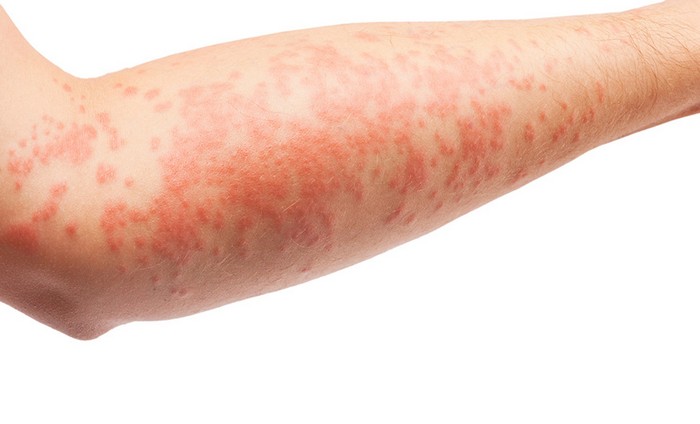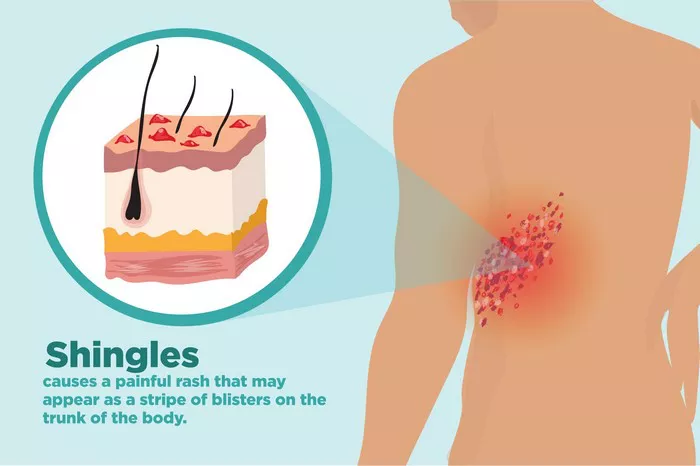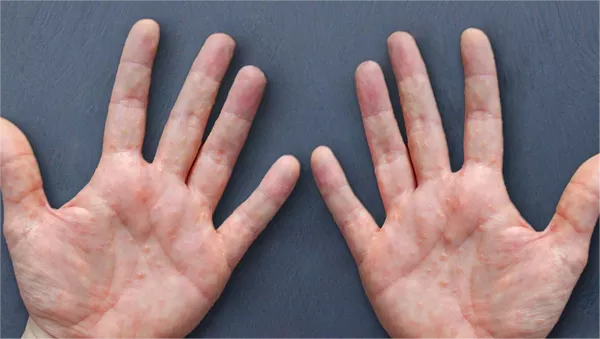Eczema, also known as atopic dermatitis, is a chronic skin condition characterized by inflamed, itchy, and often painful patches of skin. While it can appear anywhere on the body, eczema on the legs is particularly common and can be triggered by a variety of factors. Understanding these triggers is crucial for managing and preventing flare-ups. This article delves into the primary triggers of eczema on the legs, offering insight into how to manage and mitigate the condition.
Genetic Factors
Genetic Predisposition
One of the most significant triggers of eczema, including on the legs, is genetic predisposition. If you have a family history of eczema, asthma, or hay fever, you are more likely to develop the condition. Certain gene mutations can affect the skin’s barrier function, making it more susceptible to irritants and allergens.
Filaggrin Gene Mutation
A specific genetic mutation associated with eczema is in the filaggrin gene. Filaggrin is a protein that helps maintain the skin’s barrier function. When this gene is mutated, the skin barrier is compromised, leading to increased water loss and susceptibility to irritants and allergens, which can trigger eczema flare-ups.
Environmental Triggers
Climate and Weather Conditions
Environmental factors such as climate and weather play a significant role in triggering eczema on the legs. Dry, cold weather can strip the skin of moisture, leading to dryness and irritation. Conversely, hot, humid weather can cause sweating, which can also irritate the skin and lead to flare-ups.
Seasonal Allergens
Pollen and other seasonal allergens can exacerbate eczema symptoms. These allergens can come into contact with the skin or be inhaled, triggering an immune response that results in inflammation and itching. This is particularly common in the spring and fall when pollen counts are high.
Indoor Air Quality
Poor indoor air quality, including exposure to dust mites, pet dander, and mold, can also trigger eczema. These allergens can settle on bedding, carpets, and furniture, coming into contact with the skin and causing irritation.
Irritants
Chemical Irritants
Exposure to certain chemicals can trigger eczema flare-ups on the legs. Common culprits include soaps, detergents, shampoos, and household cleaning products. These chemicals can strip the skin of its natural oils, leading to dryness and irritation.
Clothing and Fabrics
The type of clothing and fabrics you wear can significantly impact eczema on the legs. Rough, scratchy materials like wool can irritate the skin, while synthetic fabrics can trap heat and moisture, exacerbating symptoms. Tight-fitting clothing can also cause friction and sweating, leading to irritation.
Personal Care Products
Some personal care products, such as lotions, creams, and perfumes, contain ingredients that can irritate the skin. Fragrances and preservatives are common culprits. It’s essential to choose products labeled as hypoallergenic and free from harsh chemicals.
Allergens
Food Allergens
Food allergies are a known trigger for eczema. Common food allergens include dairy, eggs, nuts, soy, and wheat. When an individual with eczema consumes these foods, their immune system may overreact, leading to inflammation and an eczema flare-up.
Contact Allergens
Direct contact with allergens can trigger eczema on the legs. Common contact allergens include nickel (found in jewelry and some clothing fasteners), certain fabrics, latex, and even some plants like poison ivy.
Aeroallergens
Aeroallergens, such as pollen, pet dander, and dust mites, can also trigger eczema. These allergens are airborne and can come into contact with the skin or be inhaled, causing an immune response that leads to inflammation and itching.
Stress and Emotional Factors
Psychological Stress
Stress is a well-known trigger for eczema. When you’re stressed, your body produces cortisol, a hormone that can suppress the immune system and increase inflammation, leading to eczema flare-ups. Managing stress through techniques like mindfulness, meditation, and exercise can help mitigate this trigger.
Emotional Factors
Emotional factors, such as anxiety and depression, can also impact eczema. These conditions can weaken the immune system, making the skin more susceptible to irritation and inflammation. Seeking support through therapy, counseling, or support groups can be beneficial.
Hormonal Changes
Hormonal Fluctuations
Hormonal changes, particularly in women, can trigger eczema flare-ups. Many women experience worsening eczema symptoms during their menstrual cycle, pregnancy, or menopause. These hormonal fluctuations can affect the skin’s barrier function and immune response, leading to increased sensitivity and inflammation.
SEE ALSO: How to Treat Severe Eczema in Infants
Thyroid Disorders
Thyroid disorders, such as hypothyroidism and hyperthyroidism, can also impact eczema. These conditions can affect the skin’s moisture levels and immune function, making it more prone to irritation and flare-ups.
Infections
Bacterial Infections
Bacterial infections, particularly Staphylococcus aureus, are common in individuals with eczema. This bacterium can colonize the skin and exacerbate eczema symptoms, leading to increased redness, swelling, and itching.
Viral Infections
Viral infections, such as the herpes simplex virus, can also trigger eczema flare-ups. These infections can weaken the skin’s barrier function and immune response, making it more susceptible to irritation and inflammation.
Fungal Infections
Fungal infections, such as athlete’s foot, can also impact eczema on the legs. These infections can cause itching, redness, and inflammation, exacerbating eczema symptoms.
Lifestyle Factors
Diet and Nutrition
Diet and nutrition play a crucial role in managing eczema. A diet high in processed foods, sugar, and unhealthy fats can increase inflammation and exacerbate eczema symptoms. Conversely, a diet rich in fruits, vegetables, and healthy fats can help reduce inflammation and support skin health.
Hydration
Proper hydration is essential for maintaining healthy skin. Dehydration can lead to dry, irritated skin, making it more susceptible to eczema flare-ups. Drinking adequate water and using moisturizing products can help maintain skin hydration.
Exercise and Sweat
While exercise is beneficial for overall health, sweating can trigger eczema flare-ups. Sweat can irritate the skin and cause itching, leading to increased scratching and inflammation. Wearing breathable clothing and showering immediately after exercise can help mitigate this trigger.
Sleep and Rest
Lack of sleep and poor sleep quality can impact eczema. Sleep deprivation can weaken the immune system and increase stress levels, leading to inflammation and eczema flare-ups. Ensuring adequate sleep and practicing good sleep hygiene can help manage eczema symptoms.
Prevention and Management Strategies
Skin Care Routine
Establishing a regular skin care routine is essential for managing eczema. This includes using gentle, fragrance-free cleansers and moisturizers, avoiding hot showers, and applying moisturizing products immediately after bathing to lock in moisture.
Avoiding Triggers
Identifying and avoiding triggers is crucial for preventing eczema flare-ups. This includes avoiding known allergens, wearing appropriate clothing, and using hypoallergenic personal care products.
Stress Management
Managing stress through techniques such as mindfulness, meditation, and exercise can help reduce the frequency and severity of eczema flare-ups.
Diet and Nutrition
Maintaining a healthy diet and staying hydrated can support skin health and reduce inflammation. This includes consuming a balanced diet rich in fruits, vegetables, and healthy fats.
Medical Treatments
In some cases, medical treatments may be necessary to manage eczema. This can include topical corticosteroids, antihistamines, and immunosuppressive drugs. Working with a healthcare provider can help determine the best treatment plan for your individual needs.
Support and Resources
Seeking support through therapy, counseling, or support groups can help manage the emotional and psychological aspects of eczema. Connecting with others who have similar experiences can provide valuable support and encouragement.
Conclusion
Eczema on the legs can be triggered by a variety of factors, including genetic predisposition, environmental triggers, irritants, allergens, stress, hormonal changes, infections, and lifestyle factors. Understanding these triggers is crucial for managing and preventing flare-ups. By establishing a regular skin care routine, avoiding known triggers, managing stress, maintaining a healthy diet, and seeking medical treatment when necessary, individuals with eczema can effectively manage their condition and improve their quality of life.
Related Topics:

























